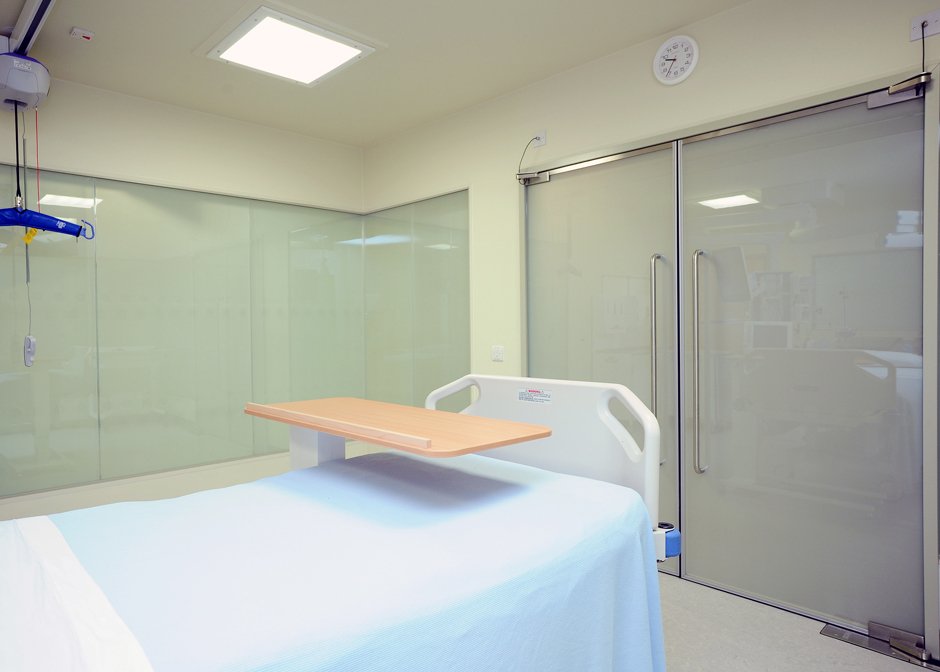How Smart Films Are Revolutionizing Healthcare Spaces
In today’s healthcare environments, privacy, hygiene, and energy efficiency are critical to both patient comfort and facility management. Smart films, a type of advanced window film technology, are transforming healthcare spaces by providing dynamic solutions that address these needs. With the power to switch from clear to opaque instantly, these films are becoming a go-to for hospitals, clinics, and medical offices seeking to enhance their facilities.
What Are Smart Films?
Smart films, also known as switchable glass films or privacy films, are specialized coatings that, when electrically charged, adjust their transparency levels. When the film is powered on, it is clear, allowing natural light to enter and provide an open, welcoming atmosphere. When powered off, the film becomes opaque, creating instant privacy.
1. Enhanced Privacy for Patients
In healthcare, patient privacy is non-negotiable. The Health Insurance Portability and Accountability Act (HIPAA) in the U.S. mandates strict regulations for patient confidentiality, and similar laws apply globally. Traditional window treatments, like blinds or curtains, are often cumbersome, prone to gathering dust, and require frequent manual adjustments. Smart films offer a seamless alternative, controlled with a simple switch, remote, or automated system.
A survey conducted by the Healthcare Facilities Accreditation Program (HFAP) found that 90% of healthcare facilities cited patient privacy as a key concern in their design. Smart films, therefore, provide a modern solution, ensuring confidentiality with ease, which can directly impact patient satisfaction. With smart films installed in patient rooms, consultation areas, and ICU units, healthcare providers can ensure immediate privacy without compromising access to natural light, an element shown to improve patient recovery times.
2. Improved Infection Control with Hygienic Surfaces
Healthcare environments must prioritize cleanliness and control infection risks. Unlike curtains or blinds, which are difficult to disinfect and prone to harboring bacteria, smart films offer a surface that is easy to clean and disinfect. Research shows that antimicrobial surfaces reduce bacterial contamination by up to 99%, which is essential in settings with high patient turnover and immunocompromised individuals.
In addition, many smart film options are manufactured with antimicrobial coatings. This technology aligns with stringent healthcare standards for cleanliness, allowing hospitals and clinics to enhance their infection control protocols without needing to sacrifice design aesthetics or functionality.
3. Energy Efficiency and Cost Savings
Heating, cooling, and lighting costs are significant in any healthcare facility, but smart films contribute to significant savings. By adjusting light transmission, smart films can help regulate room temperatures, cutting down on air conditioning and heating needs. The U.S. Department of Energy estimates that energy-efficient window films can reduce a facility's energy costs by up to 30%. For healthcare providers, this can translate to hundreds of thousands of dollars saved annually.
For example, using a combination of smart films and other energy-efficient technologies, a mid-sized hospital could reduce its energy expenditure by as much as $200,000 per year. By blocking UV rays and controlling the amount of heat entering a room, smart films contribute to a more comfortable environment for patients and staff alike, all while lowering the facility’s carbon footprint.
Key Applications of Smart Films in Healthcare
Smart films can be applied to various areas within healthcare facilities:
Patient Rooms: Instant privacy at the switch of a button, enhancing patient comfort and confidentiality.
Operating Rooms: Ensuring privacy without manual adjustments, while still allowing observation when needed.
ICU and ER Departments: Controlled transparency to provide family members with views of their loved ones while allowing medical staff immediate privacy when necessary.
Conference and Consultation Rooms: Securing sensitive discussions, whether they involve patient diagnoses or strategic meetings.
Statistics Highlighting the Demand for Smart Films in Healthcare
Privacy: Over 80% of healthcare professionals surveyed by the American Institute of Architects (AIA) believe that facility design plays a significant role in patient experience, particularly in providing privacy.
Energy Savings: Facilities that have adopted smart films report a 20-30% reduction in energy usage, based on data from the International Window Film Association (IWFA).
Hygiene and Safety: Infection control measures in hospitals, combined with antimicrobial smart film surfaces, have led to reduced infection rates by up to 40% in critical areas like ICUs and ERs, according to the Centers for Disease Control and Prevention (CDC).
Why Smart Films Are a Wise Investment for Healthcare Facilities
Beyond the immediate benefits, smart films offer long-term value. They reduce operational costs, improve hygiene, enhance patient comfort, and comply with regulations like HIPAA, all while supporting the facility’s sustainability goals. Additionally, smart films can be easily integrated with existing smart building systems, allowing for automation and further operational efficiencies.
By investing in smart films, healthcare providers position themselves as forward-thinking organizations committed to innovation, patient safety, and sustainability. It’s no wonder that more healthcare administrators are recognizing the immense value smart films bring to their facilities.
Conclusion: Smart Films - A Healthcare Revolution
Smart films are much more than a trend; they represent a revolutionary shift in how healthcare spaces can be managed for optimal functionality, privacy, and energy efficiency. Facilities that embrace this technology not only benefit their bottom line but also demonstrate a commitment to enhanced patient care and environmental responsibility.
For healthcare administrators and facility managers looking to transform their spaces with cutting-edge technology, smart films provide a highly effective and efficient solution. As the demand for energy efficiency, hygiene, and patient privacy continues to grow, smart films will undoubtedly play an increasingly vital role in shaping the future of healthcare design.
Curious how smart films can elevate your healthcare space? Text us a photo and a brief description of your needs to get a fast, personalized quote today!



